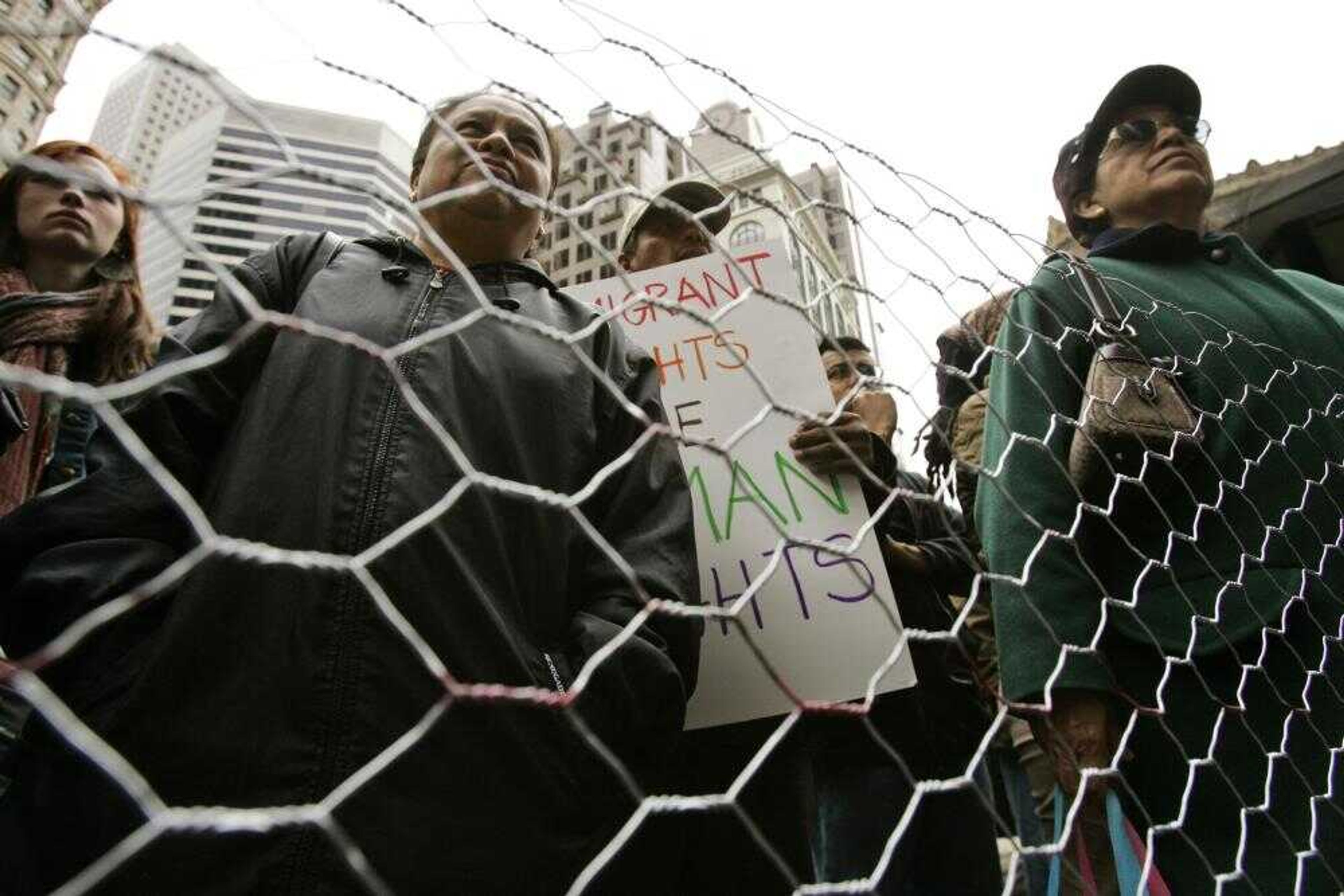Bill pits legal immigrants against those in U.S. illegally
SAN FRANCISCO -- As heated as the debate over the immigration overhaul is on Capitol Hill, the divisions may run even deeper among immigrants themselves. The measure is pitting computer-science Ph.D.s against strawberry pickers, legal immigrants against illegal ones, and those who want it all against those who are grateful for whatever the bill offers...
SAN FRANCISCO -- As heated as the debate over the immigration overhaul is on Capitol Hill, the divisions may run even deeper among immigrants themselves.
The measure is pitting computer-science Ph.D.s against strawberry pickers, legal immigrants against illegal ones, and those who want it all against those who are grateful for whatever the bill offers.
"Our only hope is immigration reform," said Connie Yoon, a Korean immigrant living illegally with her parents and sister in Chicago. "The chance of legalization -- it means everything to us."
The legislation before the Senate could lead to the most sweeping changes in U.S. immigration policy in decades. But America's immigrants do not speak with one voice.
The nation's 35 million foreign-born residents hail from more than 100 countries. Some are illiterate, and some hold advanced degrees. They live amid the bustle of New York City and in sleepy rural backwaters. Some sneaked across the border, others followed all the rules to get here.
Even the approximately 12 million here illegally -- who arguably have the most to gain -- are split.
The bill contains a provision that would allow them to stay and work, and eventually become residents. But for that, they have to pay thousands of dollars in fees and fines, learn English, and return to their home countries while immigration officials clear a backlog of residency applications, a process expected to take eight years.
These demands are pushing people who once marched side by side for immigration reform into opposite camps. Some consider the bill woefully inadequate. Others support any route to legal residency, however arduous.
"Right now, we have nothing -- just immigration sweeps and deportations," said Nora Sandigo, a Nicaraguan immigrant who is in Miami legally and helps newcomers without documents who are afraid to speak out. "It doesn't matter if they impose conditions. Anything is better than nothing."
But El Salvador native Reina Isabel Flamenco took a day off from working as a home health-care aide for the elderly to join a crowd of immigrants gathered outside the San Francisco office of Sen. Dianne Feinstein to call for the bill's defeat.
"Who will take care of my children if I go back to my country to wait for years for my turn to become legal?" said Flamenco, who has not seen her sister and parents since she crossed the border illegally 16 years ago. "They don't understand our reality."
Other illegal immigrants said registering with the Homeland Security Department, as the bill requires, would mean exposing themselves and risking the measure of stability they have found working here.
Frantz, a 24-year-old Haitian immigrant who has been living in the United States illegally since he was 9, sends his grandparents $200 a month from his bartending job in Miami. He is one year away from finishing a degree in business administration and hotel management and is afraid returning to Haiti's political turmoil to await his turn in the long legalization line will derail his career and hurt his grandparents.
"There's no food for them to eat if me and my family don't send them something," said Frantz, who did not want his last name used for fear of being deported.
Among other things, the bill would make it harder for immigrants to bring over family members. Instead, the government would rely on a point system that rewards job skills and education when deciding who should be allowed to enter.
Well-educated professionals are, of course, pleased with that provision, which would replace a system in which employers sponsor would-be immigrants for admission to this country.
"The point system -- overall it's great," said Gautam Aggarwal, a software engineer from India working for a Silicon Valley start-up. "Employers won't be able to exploit employees anymore, because skilled persons could apply for a visa on their own."
But Rita Zabala, who has picked grapes and oranges in California's San Joaquin Valley since she was 15, said a point system would be unjust for people like her.
"These are very hard jobs that we are doing out here," said Zabala, 35. But she does support the bill's guest worker program, which would allow immigrants to work temporarily in the United States.
"I have a lot of faith that something fair will happen as far as immigration," she said. "I have a lot of hope."
---
Associated Press writers Olivia Munoz in Fresno, Calif., and Jennifer Kay in Miami contributed to this report.
Connect with the Southeast Missourian Newsroom:
For corrections to this story or other insights for the editor, click here. To submit a letter to the editor, click here. To learn about the Southeast Missourian’s AI Policy, click here.









